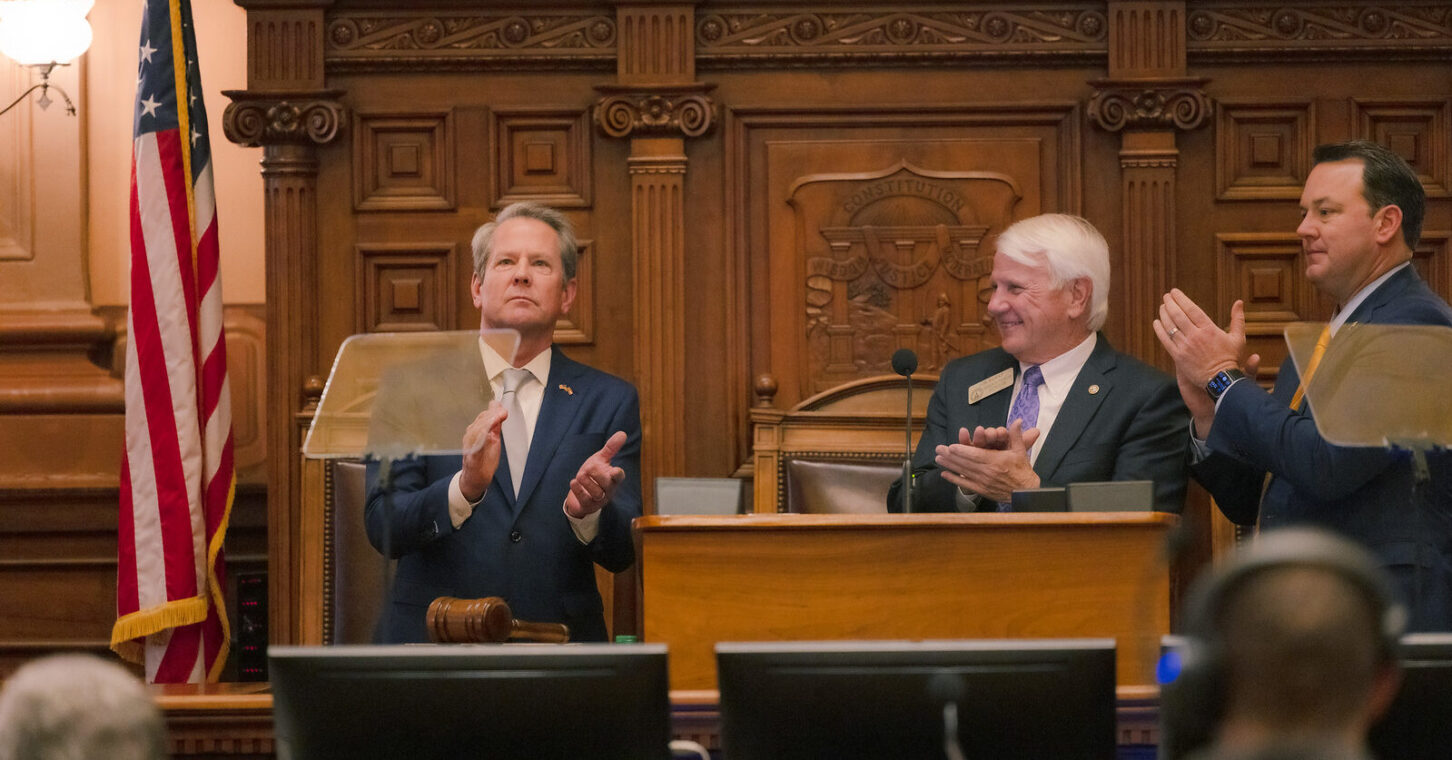
With most of the 2024 election coverage focused on the vote for president and control of Congress, we wanted to provide some insight into what happened at the state and local level this week. None of the statewide constitutional officers were on the ballot this year, but every member of the state legislature faced the voters – even if they didn’t face any opposition, as detailed below.
Among Georgia’s Congressional Delegation, 15 of the 16 incumbents will return for the 119th United States Congress. That number includes both U.S. Senators, neither of whom were on the ballot this year. The only newcomer is Brian Jack (R-Peachtree City), who will replace retiring Rep. Drew Ferguson (R-The Rock) as the representative from Georgia’s 3rd Congressional District, which runs west of Atlanta to the Alabama border
Of Georgia’s 56 Senate seats, not a single one changed parties. Going into election night, conventional wisdom held that only one district was truly competitive. Yet incumbent Sen. Shawn Still (R-Norcross) won with over 53% of the vote. Perhaps even more enlightening is that only 23 of the 56 districts were contested in the general election – and in only five of them did the winner fail to reach 60% or greater.
As things currently stand, Senate Republicans will return to the Gold Dome in January with a 33-23 majority.
While it was commonly accepted that the state House had a few more competitive districts – with most of the attention on a handful of North Fulton and Gwinnett County Republican incumbents – control of the chamber was not seriously in doubt approaching election day since Republicans held a 102-78 majority. However, since 91 votes are needed to pass legislation in the House, losing even only a few seats hampers the ability to get bills passed.
Although three incumbents lost – including Rep. Meisha Mainor (R-Atlanta) who switched parties in July 2023, despite representing a heavily-Democratic district, along with Rep. Ken Vance (R-Milledgeville) and Rep. Farooq Mughal (D-Dacula) – Republicans will head into the legislative session with a reduced majority of 100-80 after court-ordered redistricting last year created new Democratic-leaning districts. Despite the overall reduction, retaining a 20-seat majority will likely feel like a win given some of the dire predictions for Republicans earlier in the election cycle.
All three Constitutional Amendments on the ballot passed, including Amendment 1 to provide property tax relief. Now it remains to be seen how many local governments (cities, counties and school boards) choose to opt-out in 2025, a process which must be completed by March 1.
Meanwhile, two high-profile local transportation referendums failed in Cobb and Gwinnett. Both plans would have been funded by a 1% sales tax and were notably focused on bus rapid transit (BRT) initiatives rather than expanding MARTA, while the Cobb plan also included dedicated funding for projects like bike lanes and pedestrian bridges. The Gwinnett County TSPLOST failed by just over 28,000 votes, and the Cobb County MSPLOST failed by nearly 100,000 votes.
Finally, the 2026 elections are shaping up to be some of the more consequential in Georgia politics. In addition to the Congressional midterm elections that will serve as a referendum on the first two years of President Trump’s return to office, Gov. Brian Kemp is term-limited and Sen Jon Ossoff’s seat will be on the ballot, along with every statewide office. This will open plenty of opportunities for those seeking higher-profile positions.
So a word of warning for those tired of mailboxes stuffed full of mailers and endless ads during football games: As soon as the 2025 legislative session ends, the 2026 election process will likely begin.